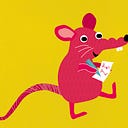Does a bear…
…hibernate in a cave? Yes and no. On the yes side, many bears do fatten themselves up as the winter months approach. Take black bears. Most of their tribe hibernate from November through March in the cold climes. They hole up in empty tree trunks, the traditional cave, and even just under a handy log. These animals (and grizzly bears) can go as long as seven and a half months without eating, drinking, urinating, or defecating.
Given their hiburability [ability to winter sleep for long durations], bears have been described as efficient hibernators. Inefficient hibernators are usually smaller animals that can’t build up the fat reserves that bears can. Chipmunks, for example, lower their body temperatures to near freezing as they hibernate. But they have to raise their body temperature to normal every few days to eat stored food and poop and then “cozy” down and lower their body temperatures back to near freezing.
On the no side, bears are not considered “true hibernators” or “THs.” THs are mostly cold-blooded creatures (except for bats and hedgehogs) that go into a near-dead state with body temps near freezing and very slow heart and breathing rates. If you have a koi pond (and who doesn’t?), you may know that these fish “shelter” during winter by drifting down to the bottom of the lower, slowing their metabolisms to almost nothing, and moving just enough to keep their joints from doing a Tin Man pre-Dorothy and Toto. (freezing stiff, in other words).
So, why all this talk about hibernation? It’s 2021, we have a new president, and the Covid-19 vaccinations are finally happening. It feels very much like winter is ending and it’s time to emerge from the cave. The Latin root verb of hibernation, hibernare, means “to winter, pass the winter, or occupy winter quarters.” (If you want to sound erudite, or perhaps a bit snobbish, start calling your cold-weather abode a hibernacle: “Come, dearest, let us retire to the hibernacle.” In the wacky world of words, there’s even a summer equivalent for hibernate: “estivate.”)
When bears wake up from hibernation, they are understandably hungry. I’m feeling famished in many ways, too. Not for food, given the infamous and relentless “Covid 19” that has stalked many of our waistlines during the pandemic, but for freedom of movement and freedom of association and freedom from the miasma of anxiety that hangs heavy over everyone. If a bear is lucky, the first thing it sees out of the cave is a blue sky and sunshine. I’m hoping for that, too.
Image: Hibernating black bears (National Park Service. Public Domain)
Published originally on RatBlurt™, January 29, 2021.
